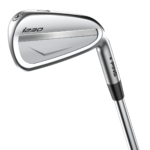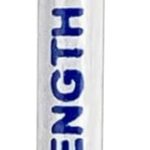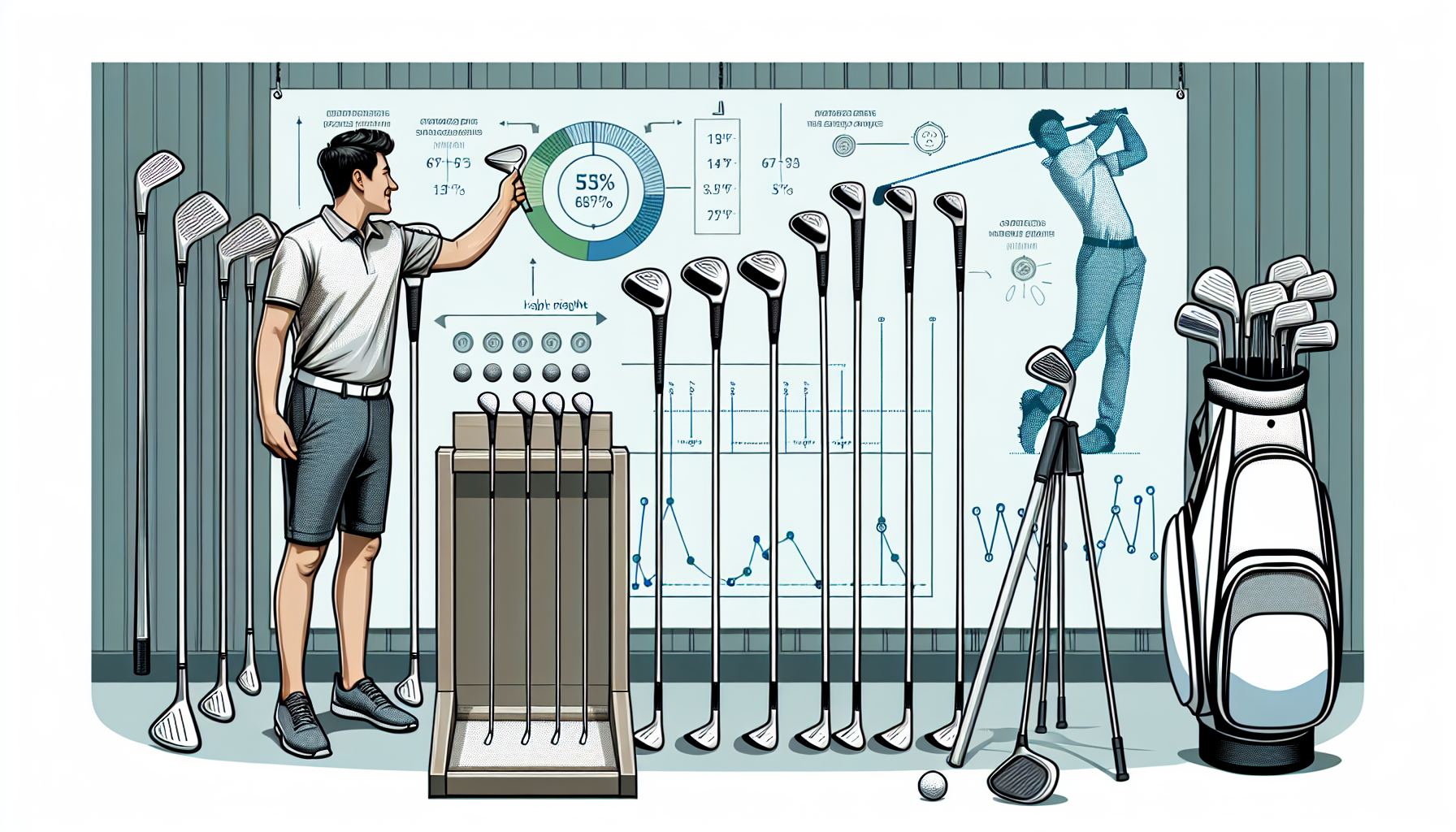
Determining the right size of golf clubs is crucial for any golfer, as it directly impacts their performance and overall experience on the course. Whether you are a seasoned player looking to upgrade your equipment or a beginner starting your golf journey, understanding the correct club size tailored to your unique physique and swing style is essential. By taking into account factors such as your height, arm length, and swing speed, you can ensure that your clubs are perfectly fitted, enabling you to make precise, powerful strikes and ultimately enhance your game. In this article, you will discover the key elements to consider and the steps to determine what size golf clubs you need to optimize your golfing experience.
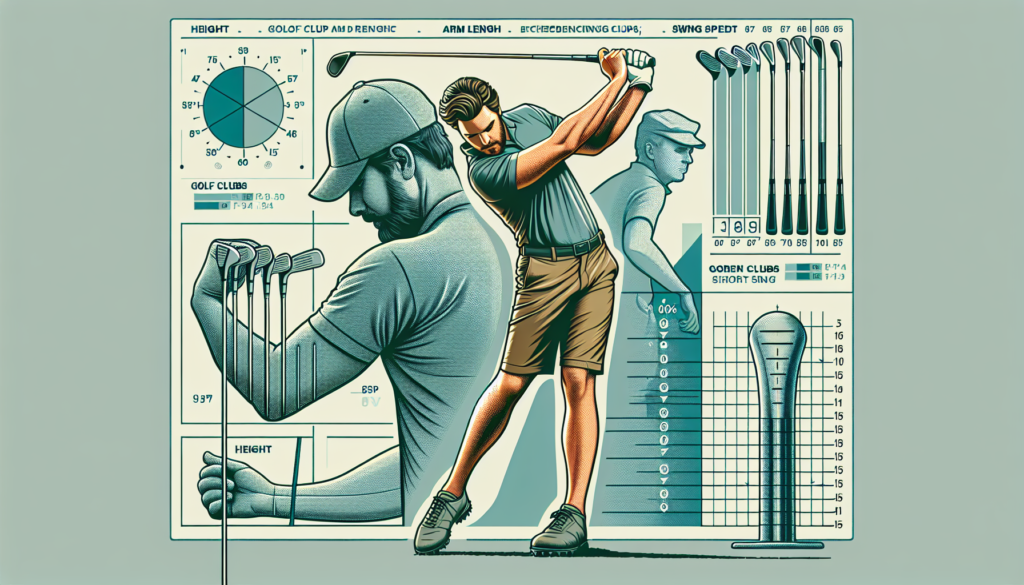
Factors to Consider
When choosing golf clubs, there are several factors that you need to consider in order to find the right fit for your game. Each factor plays a crucial role in determining the performance and comfort of your clubs. By taking into account your body measurements, playing style, skill level, grip size, shaft flexibility, swing speed, club length, club weight, clubhead design, and budget, you can ensure that you choose the optimal golf clubs for your needs.
Body Measurements
Height
Your height is an important factor to consider when selecting golf clubs. Taller individuals generally require longer clubs, while shorter individuals may benefit from shorter clubs. The length of your clubs will affect your swing mechanics and overall consistency. It is recommended to consult with a professional club fitter or golf instructor to determine the appropriate club length based on your height.
Wrist-to-Floor Measurement
The wrist-to-floor measurement is another crucial consideration when choosing golf clubs. This measurement helps determine the correct shaft length for your clubs. To measure your wrist-to-floor distance, stand upright while barefoot and let your arms hang naturally at your sides. Measure the distance from the floor to the crease of your wrist. This measurement will provide valuable information when selecting the appropriate club length.
Hand Size
The size of your hands can also influence the selection of your golf clubs. If you have larger hands, you may benefit from using clubs with a larger grip size. Conversely, if you have smaller hands, a smaller grip size may be more comfortable. It is essential to have a proper grip size to ensure control and consistency in your swing. Consult with a professional club fitter to determine the optimal grip size based on your hand size.
Playing Style
Aggressive/Powerful
If you have an aggressive and powerful playing style, your swing speed and impact on the ball are likely to be strong. In this case, you may benefit from using clubs that provide more control and forgiveness. Clubs with a larger sweet spot and higher forgiveness ratings can help compensate for any minor swing flaws and still yield consistent results. Additionally, shafts with stiffer flex may be suitable for players with aggressive swings, as they can help maintain control and maximize distance.
Controlled/Smooth
If your playing style is characterized by smooth and controlled swings, you may have a more consistent and accurate game. For players with this style, clubs that prioritize precision and feel can enhance your performance on the course. Clubs with smaller sweet spots and thinner top lines may provide a better feel and allow for more workability in shaping shots. Additionally, shafts with more flexibility can provide better responsiveness and help generate more clubhead speed.
In-Between
If your playing style falls somewhere in-between aggressive and controlled, you may benefit from a balanced approach in club selection. Finding clubs that offer a mix of forgiveness and workability can help you optimize your performance on the course. Experimenting with different clubhead designs and shaft flex options may be necessary to find the perfect balance for your game.
Skill Level
Beginner
As a beginner golfer, it is important to prioritize forgiveness and ease of use when selecting golf clubs. Clubs that offer maximum forgiveness, such as game improvement irons and hybrids, can help compensate for any swing errors and provide more consistent results. Additionally, choosing clubs with larger sweet spots and higher launch angles can help beginners get the ball airborne more easily. It is advisable to start with a basic set of clubs that includes a driver, fairway woods, irons, wedges, and a putter, all designed for forgiveness and ease of use.
Intermediate
Intermediate golfers have developed a foundational skill set and are looking to refine their game. At this stage, golfers can start considering clubs that offer more control and workability. Transitioning to clubs that provide a balance between forgiveness and shot-shaping capabilities can help intermediate players take their game to the next level. Customizing club options, such as selecting specific iron models or experimenting with different wedge grinds, can also be beneficial for fine-tuning performance.
Advanced
Advanced golfers have a high level of skill and are capable of executing various shots with precision and consistency. At this stage, golfers have the knowledge and experience to make more informed decisions when selecting clubs. Advanced players can focus on clubs that cater to their specific preferences, such as blade-style irons for maximum workability or high-performance drivers for increased distance. Custom fitting becomes even more crucial for advanced players to ensure that the clubs are tailored to their unique swing characteristics.
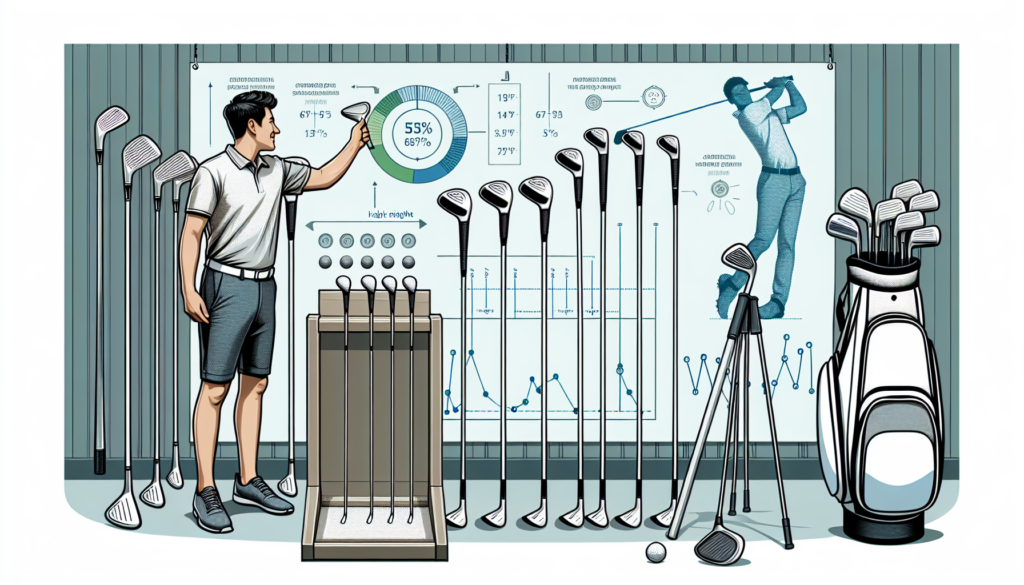
Grip Size
Standard
Standard grip size is the most common option, and it is suitable for many golfers. It provides a neutral grip that allows for consistent hand placement and control. Golfers with average-sized hands often find standard grips comfortable and effective in achieving desired results. Standard grips are typically included in off-the-shelf golf clubs.
Undersize
Undersize grips are smaller in diameter, catering to golfers with smaller hands or those who prefer a lighter grip feel. Using undersize grips can promote increased hand action and allow for more control in shot shaping. Golfers with smaller hands often find undersize grips more comfortable, enabling them to have a secure hold on the club throughout the swing.
Oversize
Oversize grips have a larger diameter, providing additional padding and grip surface. Golfers with larger hands or those seeking more stability in their grip may prefer oversize grips. These grips can reduce hand tension and promote a smoother swing by minimizing excessive grip pressure. Oversize grips can also benefit golfers with arthritis or hand injuries, as they provide more cushioning and reduce stress on the hands and wrists.
Shaft Flexibility
Graphite
Graphite shafts are renowned for their lightweight properties, which can help golfers achieve increased swing speed and distance. These shafts are often more flexible and can provide a softer feel. With their vibration-dampening characteristics, graphite shafts can also reduce the impact on joints, resulting in less fatigue during extended play. Golfers with slower swing speeds or those seeking a more comfortable feel may find graphite shafts advantageous.
Steel
Steel shafts are known for their durability and stability, making them a popular choice among golfers. Steel shafts generally offer a firmer feel and increased control over shots. They are favored by golfers with faster swing speeds, as they provide more accuracy and precision. Steel shafts can also suit golfers who prefer a more consistent trajectory and desire a stiffer, more controlled flex.
Swing Speed
Slow
If you have a slow swing speed, using clubs that are designed to maximize distance and launch angle can help optimize your performance. Clubs with more forgiveness and higher loft can assist in getting the ball airborne and compensating for any lost distance. Additionally, choosing lightweight graphite shafts with flexible flex can help generate more clubhead speed and maximize distance.
Average
For golfers with average swing speeds, finding a balance between distance and control is paramount. Clubs that offer a blend of forgiveness and workability can help optimize performance. It is advisable to experiment with different shaft flex options to find the right balance of control and distance. Steel shafts with medium flex may be suitable for golfers with average swing speeds, offering enhanced accuracy and consistency.
Fast
Golfers with fast swing speeds have the potential for generating substantial power and distance. However, maintaining control and accuracy can be a challenge. Clubs with a heavier weight and stiffer flex can help keep the swing in check and provide better control at impact. Steel shafts with extra stiff flex are commonly used by golfers with fast swing speeds to maximize accuracy and prevent excessive ball flight deviations.
Club Length
Standard Length
Standard club length is the most common measurement and is suitable for the majority of golfers. For players within the average height range and with standard body proportions, standard-length clubs offer a balanced feel and allow for proper swing mechanics. Choosing clubs with the standard length can provide consistency and predictability in your shots.
Lengthening/Shortening
Lengthening or shortening the club length can be beneficial for golfers who fall outside the average height range or have unique swing characteristics. Players who are taller or have longer arms may benefit from longer club lengths, as they can help promote better posture and swing mechanics. Conversely, players who are shorter or have shorter arms may find shorter club lengths more comfortable and easier to control. Consulting with a professional club fitter is vital when considering adjustments to club length to ensure optimal performance.
Club Weight
Lightweight
Using lightweight clubs can offer several advantages to certain golfers. Lightweight clubs are often easier to swing and can help players with slower swing speeds generate more clubhead speed and distance. Additionally, lightweight clubs can reduce fatigue during extended play, making them suitable for golfers who may struggle with endurance.
Standard Weight
Standard weight clubs are the most common option and are designed to provide the optimal balance between distance, control, and feel. These clubs cater to a wide range of golfers and can suit various swing speeds and playing styles. Most off-the-shelf clubs come with standard weight options that offer a good balance of performance attributes.
Heavyweight
Heavyweight clubs are favored by certain golfers who prioritize control and stability. The additional weight can help reduce excessive hands and wrist movement, resulting in a more consistent swing. Golfers with fast swing speeds or those seeking enhanced accuracy may find heavyweight clubs advantageous. However, it is essential to note that using heavier clubs can require more physical strength and may not be suitable for every golfer.
Clubhead Design
The design of the clubhead plays a significant role in determining the characteristics of each shot. Different clubhead designs offer distinct performance attributes and can cater to individual player preferences.
Cavity Back
Cavity back clubheads feature a cavity or hollowed-out back design. These clubheads offer greater forgiveness and stability, making them suitable for beginners and higher handicap golfers. The weight distribution and perimeter weighting help increase the moment of inertia, minimizing the loss of distance and accuracy on off-center hits. Cavity back clubheads can promote straighter and more consistent shots, making them a popular choice for players who prioritize forgiveness.
Blade
Blade clubheads, also known as muscle back or forged irons, have a more traditional and compact design. These clubheads provide exceptional control and workability, making them popular among skilled golfers. Blade irons require precise shot-making and consistent ball-striking for optimal performance. Golfers who prioritize shot-shaping and feel often prefer blade clubheads for their ability to provide feedback and versatility in shot execution.
Hybrid
Hybrid clubheads combine the characteristics of both irons and fairway woods, offering forgiveness, distance, and versatility. These clubheads typically have a larger profile, a lower center of gravity, and a rounded shape. Hybrids are especially beneficial when replacing long irons, as they are easier to hit and launch higher, leading to greater distance and accuracy. Golfers of all skill levels can benefit from having hybrid clubheads in their bag.
Mallet
Mallet putter clubheads have a larger and more elongated design compared to traditional blade putters. These clubheads offer a higher level of forgiveness and stability, making them easier to align and control. The weight distribution and enhanced moment of inertia of mallet putters can improve the consistency of your stroke and minimize the effects of mishits. Golfers who struggle with putting accuracy or desire more forgiveness often gravitate towards mallet putter designs.
Budget
Economy Range
For budget-conscious golfers, the economy range offers a variety of options that provide decent performance at an affordable price point. These clubs are often suitable for beginners or occasional golfers who do not want to invest a significant amount of money. While they may not have all the premium features and customization options, clubs in the economy range can still deliver satisfactory results on the golf course.
Mid-Range
The mid-range of golf clubs provides a balance between quality and affordability. Golfers who are looking for clubs with improved performance and more customization options can find suitable options in this range. Mid-range clubs often incorporate advanced technology and materials that can enhance distance, accuracy, and overall feel. These clubs are favored by golfers who seek better performance without breaking the bank.
Premium
Premium golf clubs represent the pinnacle of quality, performance, and customization. These clubs are often designed with advanced technology, superior materials, and meticulous craftsmanship. Golfers who demand the highest level of performance and are willing to invest in top-of-the-line equipment often opt for premium clubs. Custom fitting options are typically offered in the premium range to ensure that the clubs are perfectly tailored to the golfer’s unique specifications.
In conclusion, selecting the right golf clubs involves considering various factors, including body measurements, playing style, skill level, grip size, shaft flexibility, swing speed, club length, club weight, clubhead design, and budget. By taking into account these factors, you can make an informed decision and choose clubs that will enhance your game and maximize your enjoyment on the golf course. Consulting with a professional club fitter can provide valuable insights and guidance in finding the perfect fit for your individual needs. Remember, investing in properly fitted clubs can significantly impact your performance and overall golfing experience.


